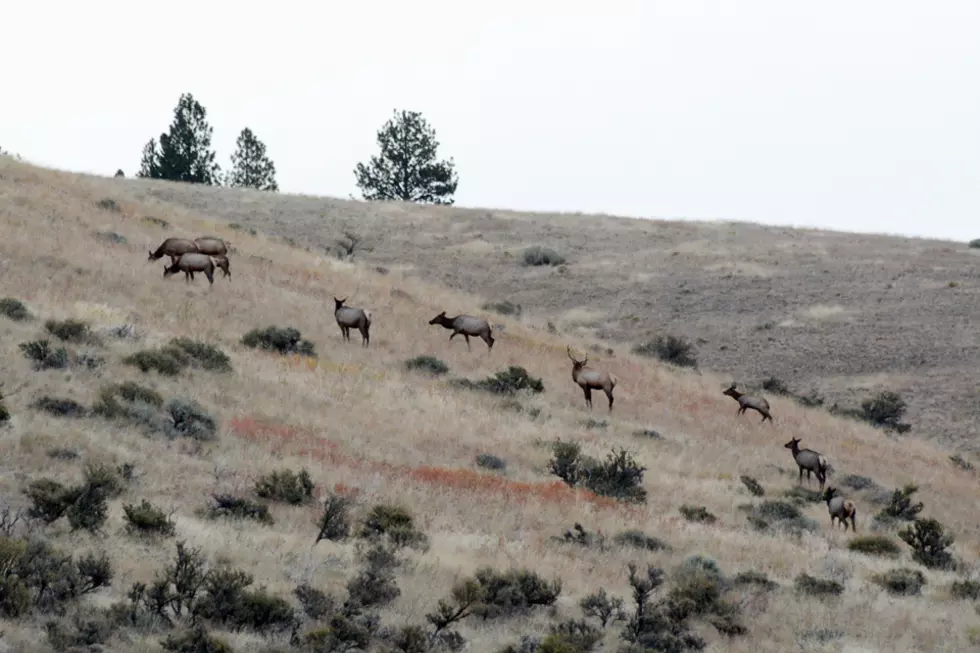
Documents: Landowner elk tags proposed to avert half-year elk season
The debate continues over a bill that would give larger landowners say over some nonresidents elk licenses, but legislative documents show why the bill is poorly vetted.
After House Bill 505 was heard in the House Fish, Wildlife and Parks committee a week ago, hunters were trying to figure out why Fish, Wildlife & Parks would support a bill giving big benefits – the ability to sponsor 10 nonresidents to receive elk licenses - to people owning more than 640 acres.
Forty-six hunters and former biologists signed up to speak against the bill. Even the handful of proponents didn’t know if the bill could improve the problem of elk overpopulation in certain areas.
Those at the meeting became curious about who was really responsible for proposing the bill. Rep. Wylie Galt, R-Martinsdale, the bill’s sponsor, said he was just carrying a bill for FWP. But then FWP director Hank Worsech said FWP didn’t propose the bill but worked with the sponsor so “we’re going to own this.”
Both were partly correct, according to legislative records.
During his testimony, Worsech said Galt originally wanted to make shoulder seasons permanent, extending the elk season to run for six months on private land. So FWP Chief of Staff Quentin Kujala came up with the ideas spelled out in HB 505.
The legislative record backs that up.
In December, Galt called and asked Legislative staffer Hope Stockwell to draft a bill mandating elk shoulder seasons. On New Year’s Eve, Stockwell sent Galt a draft bill that copied the wording of a 2015 bill – Senate Bill 245 sponsored by 31 Republicans – that would have allowed cow elk hunts after the regular season on public or private land in any hunting district that was over-population. In 2015, FWP supported the bill, which passed both houses but was vetoed by Gov. Steve Bullock.
On Jan. 19, after some back-and-forth with Galt, Stockwell sent the draft shoulder season bill to Worsech and other members of the FWP director’s office for review.
On Jan. 22, FWP deputy director Dustin Temple responded to Stockwell, saying FWP staff was going to suggest a different bill to Galt in the following week.
“We’re writing it up now and will run it past you early next week,” Temple wrote.
On Feb. 8, 10 days before HB 505 was introduced, FWP legislative liaison Ron Jendro sent to Galt FWP’s suggested wording for the revised bill.
As Stockwell started fine-tuning the language, Kujala asked her to make sure the bill wouldn’t affect the landowner-sponsored licenses that already exist. Each year, 2,000 deer combination licenses are set aside for nonresidents who can show they have a sponsor landowner.
Galt approved FWP’s bill in a Feb. 13 email and introduced it on Feb. 19.
During the March 9 hearing, Worsech said FWP didn’t have time to vet the bill. The two weeks between when FWP received the shoulder season bill and when it sent the new bill back to Galt would explain why. It also explains why hunters said they felt blindsided and find so many things wrong with the bill. Rules and legislation that go through the public process garner better compromises and more citizen support.
Resident hunters oppose HB 505 not only for the 10 landowner-sponsored licenses, which would further commercialize wildlife, but also because it gave five bonus points to hunters who agreed to hunt only cow elk. Currently, hunters can buy only one bonus point a year toward priority to get more competitive licenses.
Since the hearing, Rep. Brian Putnam, R-Kalispell, has proposed an amendment that would reduce the number of bonus points to one. No other changes have been made, and most hunters’ groups are still opposed.
One hunting group has been noticeably silent on the bill. The biggest elk organization in the nation, the Rocky Mountain Elk Foundation, has yet to comment. In 2015, the Rocky Mountain Elk Foundation testified in support of SB 245.
Rocky Mountain Elk Foundation spokesman Mark Holyoak said his organization might not weigh in on this bill.
“That’s still to be determined,” Holyoak said. “Like every bill, each has its twists and turns, and amendments are added. So we’re watching the process. We’ve been in contact with almost all parties involved: the sponsor, FWP, sportsmen coalitions and other folks. We don’t necessarily come out on every bill. Our executive team’s apprised and watching it.”
Contact reporter Laura Lundquist at lundquist@missoulacurrent.com.
